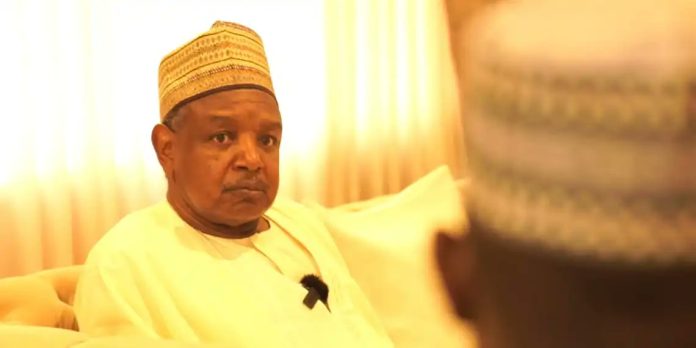For me, as a political appointee, maybe more than a political appointee, both before and now in government, I know that what the president has done in the last 10 months has been outstanding.
First, he took one of the bold steps that all the presidential candidates said should be taken, which is the removal of fuel subsidy. Aside from the subsidy, there is also a measure on the deregulation of the foreign exchange market so that investors can return to our country.
This is not even an issue of blame game. President Tinubu decided that he would not play the blame game.
But Nigerians have been hesitant in taking some actions that should have been taken decades ago.
We want to be like Asian countries, we want to grow like Brazil but Brazil and those Asian countries that we want, we are competing with, have taken measures that we needed to have taken decades ago.
The president is even bold to acknowledge that. Let’s do it now. Some of these measures have consequences which we acknowledge. And that’s why again, a number of measures are introduced in order to ameliorate the situation.
These measures are helpful to Nigeria, irrespective of North or South because they are to restore macroeconomic stability, to restore security in the country and make it better so that investors will feel confident. And equally, the security effort has been outstanding. A lot of the gains of the past have been improved, often, particularly, in many parts of northern Nigeria and the budget itself.
On the budget, President Tinubu has so far been involved with three budgets. He inherited a budget that was passed in June 2023, which is the N819 billion supplementary appropriation. He renegotiated that budget with the National Assembly. He said to them that about N500 billion out of that money was to support the vulnerable that might be affected by the interventions we intended to take. And they agreed with him and provided N200 billion out of it for agricultural intervention, N100 billion for CNG buses, another N75 billion for MBS and N50 billion for Nano credit. And I think that was a commendable first step.
Then in October, the second supplementary budget came in the sum of N2.17 trillion. This is a supplementary budget that was meant for infrastructure and to meet the obligations and promises made to labour, which awards as part of the wage negotiation and to provide additional cash transfer to Nigerians. But the bulk of that was to the security services. Security is everyone’s business. When you spend on security, everyone becomes better off. And the whole idea of that is to ensure that our security is funded better even while we are not where we want to be.
Thirdly, the 2024 budget. These budgets are budgets for Nigeria. They are not intended to favour or reward any particular zone. They are meant to provide the basis for the restoration of macroeconomic stability, resumption of macroeconomic growth, investments and employment across the country. And we are confident that is being done.
Take a look at the budget, which are the biggest ministries in terms of spending? You will see that agriculture ranks high. The two ministers in (the Federal Ministry of) Agriculture are from the North. Then you rank Education. The two ministers in Education are from the North. Next is Defence. The two ministers, again, are from the North. Same with the Ministry of Health.
The Ministry of Works is also top. The gentleman, Dave Umahi, is from the South-east. He is not from the South-west. So even the ministries that are the biggest spenders cannot lend themselves to the assertion that the budget is in any way shaped to deny any part of Nigeria.
So to conclude, yes, I don’t think politicians or other appointees have been shy about talking about it (the administration’s achievement) but maybe there is a need to do more.
*Excerpted from an interview with Premium Times. Senator Atiku Bagudu, two term governor of Kebbi State is the minister of budget and national planning
Share your story or advertise with us: Whatsapp: +2347068606071 Email: info@newspotng.com












